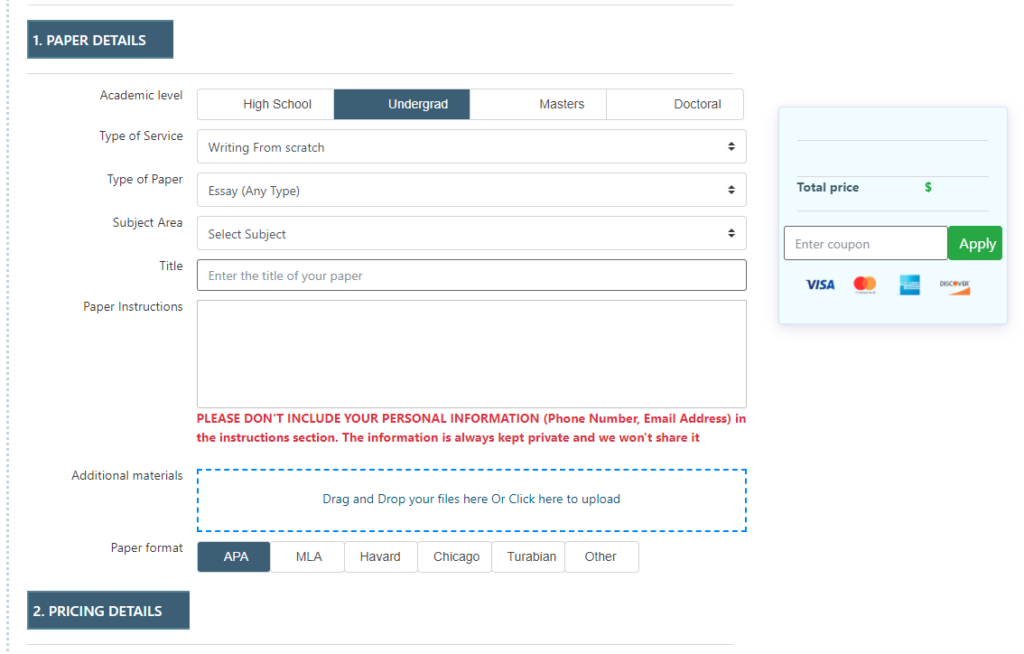Introduction
Human rights are critical in developing responses to pandemics, both for protecting public health and people’s livelihoods. Interventions that are shaped by human rights lead to better outcomes in managing a pandemic, protecting the well-being of individuals, and preserving their dignity. They also direct attention to the people who are suffering the most to create appropriate responses. The COVID-19 pandemic has greatly transformed human life. It has minimized human contact, as governments institute strict requirements, such as wearing masks, prohibiting public gatherings, hand washing, limiting the freedom of movement, and mandatory checkups. Many of the responses have received a lot of backlash because of their interference with human rights. The thought that COVID-19 restrictions and rules facilitating the violation of human rights may be irrational because the pandemic necessitates formulation and implementation of tough rules that will enable effective control of the spread of the highly-infectious disease.
COVID 19 and Transmission Prevention Implications
In March of this year, the World Health Organization (WHO) reported the outbreak of the coronavirus, which was first identified in Wuhan, China in 2019, had attained the level of an international pandemic. WHO cited concerns surrounding the alarming levels of severity and spread. Hence, the institution encouraged national governments to institute aggressive and timely actions to control the spread of the disease. Consequentially, governments in many nations developed quarantine measures, such as forcing people to stay at home, imposing the strict requirement of wearing masks, closing down businesses, prohibiting public gatherings, forcing checkups, and limiting people’s movements. Public administrators went to extreme levels to exert interventions (Delvac, 2020). They used the army and police officers to monitor neighborhoods and arrest quarantine violators. The responses were viewed as necessary but they interfered with human rights, including the freedom of movement, right to privacy, the right to work, freedom from torture, freedom from searches and seizures, and freedom of expression.
The severity and scope of COVID-19 raises the level of public threat to warrant the restriction of certain human rights. The international human rights policy guarantees individuals the right to maximum health standards and obligates public administrations to take proper steps to minimize or eliminate threats to public health and offer medical care to those who need it. The human rights law also recognizes that under serious public health threats and emergencies, restrictions are justified legally based on scientific evidence (Ish-Hurwitz, 2020). The regulations should not be discriminatory or arbitrary. They should also be in limited durations, subject to assessment, proportionate towards objectives, and mindful of human dignity (Delvac, 2020). Certain rights, such as the prohibition of torture and ill-treatment, the right not to be detained, and the right to life, should continue to be observed in all circumstances (Delvac, 2020).
Lockdowns are the most common responses in different countries. They center on halting the movement of people for a specific duration. Lockdowns mean that individuals are no longer supposed to go to work, unless it is absolutely necessary. They are also preventing persons from seeing their loved ones and interacting with neighbors and new people. As of April 2020, more than a third of the planet’s population was on lockdown. India enacted a 21-day lockdown. Germany prohibited meetings for more than two people. Additionally, the lockdown has impacted more than 90% of the student population in the world (Delvac, 2020). Lockdowns adhere to the requirement of social distancing. They are a refuge for the wealthy in society who can afford to stay at home but they exert a heavy toll on the poor who are dependent on daily earnings. Low-income households rely heavily on manual labor and informal sector jobs to earn money for the day to feed their families. They cannot afford to stockpile necessities like the rich and do not have regular access to clean water (Amon & Wurth, 2020). Therefore, social distancing in developing areas means cutting off access to salaries, water, and food without supplementing them in other ways.
To enforce lockdowns and curfews, governments have had to enforce lethal measures, such as using excessive force and placing people in quarantine forcefully. In volatile countries, police officers abuse, detain, and shoot individuals who are breaking curfew because they need to desperately look for food. Thousands of citizens are detained for violating lockdowns, a practice that is both unsafe and unnecessary. Prisons and jails are high-risk areas, and governments should reconsider incarcerating people to avoid the spread of the virus. The strict requirements make it difficult for people who need emergency care, such as pregnant women, individuals who get strokes and heart attacks, and people who encounter accidental injuries, to access proper medical services. Regardless of the severity of the situation, law enforcers should always follow the principles of necessity, legality, precaution, and proportionality.
Although measures to curb assembly and movement are important under the present circumstances, public scrutiny and confidence are necessary for them to be effective. Article 5 of the Global Declaration of Human Rights stipulates that “no one shall be subject to torture or to cruel, inhumane, or degrading treatment or punishment” (Delvac, 2020). The President of the Philippines Duterte mentioned in a public address that curfew violators would be shot. No one had been shot yet, but reports indicate that law enforcers put people in animal cages and impose embarrassing physical punishments. In Brazil, individuals found on the streets for no reason have their feet bound in the city public squares. South African police officers picked homeless citizens and put them in crowded tents in a soccer stadium. While this has proven to be effective in promoting adherence to the established regulations in some countries, it is a demonstration of the disregard that some governments may have towards disadvantaged individuals in a bid to enforce their directives.
Public gatherings were noted to be the number one cause for the significant spread of coronavirus during the early stages of the pandemic. It was easy for people to spread the disease in their workplaces, local markets, crowded streets, churches, weddings, schools, and other public spaces. As a result, governments have had to ban public gatherings and shut down places where crowds gather, such as bars, restaurants, schools, and churches. The rules interfere with the livelihoods of people, particularly the working class and small business owners. The ban also violates the freedom of religion. The closure of schools affects the right to education, as millions of students worldwide miss out on an entire academic year. Churches were closed for some time before they were ready to implement protective measures for the virus (Human Rights Watch, 2020). Weddings and burials were also cancelled, which led to the hasty burying of individuals who succumbed to the illness in public burial grounds.
Another fundamental rule imposed by governments is the wearing of masks. Face masks are an additional requirement in the effort to curb the spread of coronavirus. They were initially meant for people who had COVID-19 to avoid spreading the disease. However, since many individuals with the illness could be asymptomatic, preventing others from identifying whether they have it or not, it became necessary for everyone to wear the face coverings when they leave their houses (Amon & Wurth, 2020). Face masks function by averting virus particles from moving from the mouths and noses of infected persons onto others or public surfaces. The primary transmission route for COVID-19 is through exhaled droplets generated from coughing, talking, or sneezing. Exhaled droplets could be smaller or larger than five micrometers (Wang et al., 2020). Hence, they can easily float through air for some time or even several hours in an enclosed context.
Face masks have been readily welcomed by most people, but others continue to violate the requirement, placing their loved ones and others in danger. Often, individuals let their guard down when interacting with friends in the houses or outside. They also remove the masks when talking to their colleagues at work. Family and friends are the primary causes of the rapid spread of the virus. Others have made claims that wearing the face coverings is unlawful, and that businesses should not prohibit them from entry without wearing the masks. They also cite issues, such as the discomfort that emanates from wearing masks, including the difficulty of breathing and skin conditions. Wearing masks also exerts disability discrimination for those with hearing impairment who have to read people’s lips to understand what they are saying (Wang et al., 2020). Law enforcers, business owners, and employers have minimal knowledge about the medical conditions that may require a person not to wear a mask.
Based on the above analysis, several rights have been infringed with the development of new rules to control the spread of coronavirus. However, the regulations are necessary to facilitate public health. Unfortunately, many of the rules are not adequate and effective because of underlying factors, such as poverty, employment, cultural values, and people’s attitudes. Governments are obligated to ensure the continuity of operations and services, such as care-giving support, healthcare, food, and water (Yamin & Habibi, 2020). Governmental regulations should focus on minimal disruptions to daily life activities, including employment and the delivery of healthcare. It is essential for people to continue working to sustain their livelihoods (Amon & Wurth, 2020). Hence, critical sectors, such as agriculture, hospitality, and other avenues of employment, should be shouldered by governmental interventions to prevent people from losing funds to pay for expenses, such as rent and medical services.
Participation is the basic guideline for human rights. All rules should allow meaningful and direct community participation to facilitate decision-making and transparency. Only then can governments avoid breaching human rights. Platforms for civil society participation and community voices should not be reduced. Communities should feel empowered and trusted by their governments to act within their best interests to protect their lives and those of their loved ones. Community leaders can play a vital role in getting public messages across. Churches can disseminate accurate details, prevent panic, and manage discrimination and stigma. The faith-based organizations and charity institutions can also monitor the wellness of community members, particularly vulnerable groups that are finding it difficult to adapt to the pandemic (Nyawa, 2020). They can distribute medical and food supplies and share people’s concerns with local officials to generate adequate responses.
Governmental intervention should prioritize social and financial rights to mitigate the impacts of the pandemic. Presently, food insecurity and unemployment have risen to significant levels within a short period. The literacy of children is under threat because of school closures. Women and men are confined in their homes with domestic abusers, with no access to shelters and harm reduction centers. Countries that invest in securing social and financial rights are likely to be more resilient. Governments should focus on efficient food distribution channels, paid sick leaves, minimum wages, personal protective equipment in workplaces, gender equality, and protection and social security systems (Amon & Wurth, 2020). Political leaders should also be accountable to avoid capitalizing on the epidemic to advance personal agendas, such as stealing relief funds and violating human rights.
Another key problem that emanates from COVID-19 rules is the inhumane treatment of policy violators. Although coercive strategies are justified in specific circumstances, they can backfire if executed with a heavy-handed, undermining, and disproportionate manner. Using force can escalates the situation because the community will no longer trust law enforcement agencies and the government (United Nations (UN), 2020). Also, violence from law enforcers contradicts the purpose of the public health interventions by placing people at a higher risk of being injured by ruthless officers or acquiring the disease in detention centers. The instability caused by COVID-19 requires stability and peace to be maintained, as well as respect, justice, and fairness in the application of the rule of law (Human Rights Watch, 2020). Justice administrators and courts should continue to function. They must protect vulnerable groups, such as women, the elderly, persons abled differently, and children, from violence and abuse.
Conclusion
While the stringent measures put in place by governments in response to the COVID-19 pandemic may seem limiting to individuals and entities given their social, economic, and political implications, they are not demeaning. Public health crises and emergencies often warrant restrictions of human rights to secure the general community. Governments are forced to implement rules and initiatives that may not impress everyone, but are necessary to maintain stability, peace, and health. The COVID-19 epidemic has disrupted people’s lives by affecting their academics, employment, social interaction, privacy, religious beliefs, and movement. Schools, churches, markets, and other public spaces have been closed to minimize exposure. People are also expected to maintain social distancing and other preventive measures, such as wearing masks and washing their hands. While it is important for the government to take charge in volatile situations, it must also uphold respect, justice, and dignity in its policies. The rules should not harm or violate people. They should also accommodate the interests and concerns of community members to facilitate responsiveness and easier application. As such, the new COVID-19 rules may appear irrational and a violation of human rights, but they are paramount in curbing the spread of the infectious disease. Nevertheless, governments should be held accountable for actions that harm citizens and advance the hidden agendas of politicians.
References
Amon, J. J., & Wurth, M. (2020). A Virtual Roundtable on COVID-19 and Human Rights with Human Rights Watch Researchers. Health and Human Rights Journal. https://www.hhrjournal.org/2020/04/a-virtual-roundtable-on-covid-19-and-human-rights-with-human-rights-watch-staff/
Delvac, K.S. (2020, May 25). Human Rights Abuses in the Enforcement of Coronavirus Security Measures. National Law Review, Volume X, Number 146. https://www.natlawreview.com/article/human-rights-abuses-enforcement-coronavirus-security-measures
Human Rights Watch. (2020, March 19). Human Rights Dimensions of COVID-19 Response. Relief Web – Informing humanitarians worldwide. https://reliefweb.int/sites/reliefweb.int/files/resources/Human%20Rights%20Dimensions%20of%20COVID-19%20Response.pdf
Ish-Hurwitz, Y. (2020, April 26). OHCHR | “States responses to Covid 19 threat should not halt freedoms of assembly and association” – UN expert on the rights to freedoms of peaceful assembly and of association, Mr. Clement Voule. The World Economic Forum. https://www.ohchr.org/en/NewsEvents/Pages/DisplayNews.aspx?NewsID=25788&LangID=E
Nyawa, J. M. (2020). Human rights and COVID-19 (Corona virus) in Kenya: Is the law silent? SSRN Electronic Journal. https://doi.org/10.2139/ssrn.3587768
United Nations (UN). (2020, April). COVID-19 and Human Rights We are all in this together. Welcome to the United Nations. https://www.un.org/victimsofterrorism/sites/www.un.org.victimsofterrorism/files/un_-_human_rights_and_covid_april_2020.pdf
Wang, J., Pan, L., Tang, S., Ji, J. S., & Shi, X. (2020). Mask use during COVID-19: A risk adjusted strategy. Environmental Pollution, 115099. Doi: 10.1016/j.envpol.2020.115099
Yamin, A. E., & Habibi, R. (2020). Human Rights and Coronavirus: What’s at Stake for Truth, Trust, and Democracy? Health and Human Rights Journal. https://www.hhrjournal.org/2020/03/human-rights-and-coronavirus-whats-at-stake-for-truth-trust-and-democracy/







